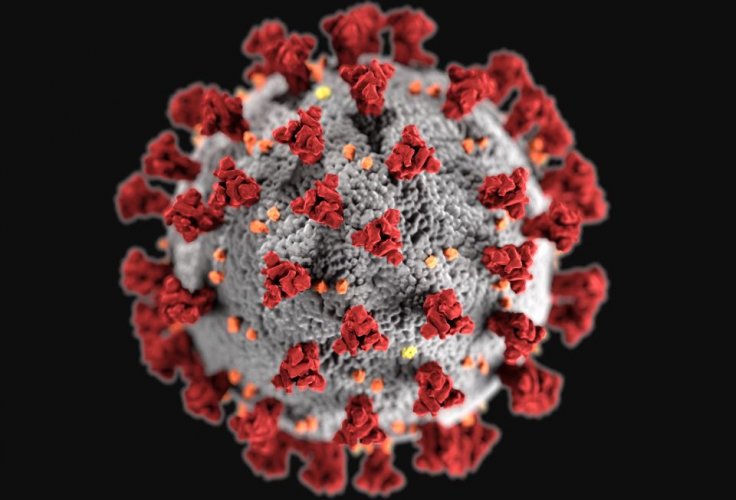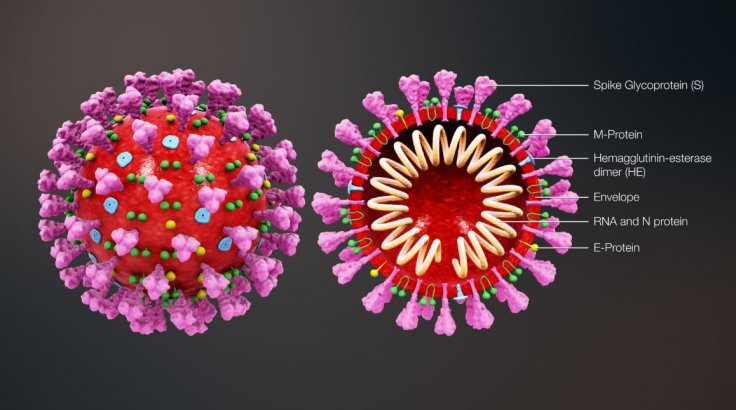As the deadly COVID-19 continues to infect more people across the world, a cure or a vaccine appears to be elusive. Therefore, a deeper understanding of the factors that can exacerbate the outcome of the disease can enable in its better treatment. A letter to the editor published in the Journal of Travel Medicine suggests that patients who are on prescription drugs for common cardiovascular conditions could experience worse outcomes.
The paper by Dr. James Diaz, Professor and Head of Environmental Health Sciences at LSU Health New Orleans School of Public Health, suggests that patients who are on prescriptions for two kinds of drugs — angiotensin-converting enzyme inhibitors (ACEIs) and angiotensin receptor blockers (ARBs) — could be at a greater risk of contracting and suffering harsher outcomes of coronavirus, especially older people.

Patients with cardiovascular conditions more affected
Several studies have found that both the SARS beta coronaviruses — SARS-CoV which caused SARS (Severe Acute Respiratory Syndrome), and the current COVID-19 pandemic causing SARS-CoV-2 — gain entry into the lung cells by binding with angiotensin-converting enzyme 2 (ACE2) receptors in the lower respiratory tracts of patients infected with the disease. After 10-14 days, it could result in viral pneumonia, followed by a lethal respiratory failure.
Diaz supported the hypothesis through a recent study that descriptively analysed 1,099 patients who were treated in China after receiving a laboratory-confirmed diagnosis of COVID-19 infection between December 11, 2019 and January 29, 2020.
According to the study, the effect of the disease was found to be more severe in patients suffering from coronary artery disease, chronic renal disease, diabetes and hypertension. The study noted that all the patients affected with the mentioned conditions satisfied all necessary indicators that could warrant the prescription of ACEIs or ARBs.

ACEIs and ARBs commonly prescribed for older adults
Research using experimental models has proven that after an intravenous administration of ACEIs and ARBs, the amount of ACE2 receptors found in the blood circulation within the lungs, also known as cardiopulmonary circulation, increases significantly.
Diaz elucidated that ACEIs and ARB's are commonly prescribed medications for people suffering from cardiovascular conditions such as diabetes, heart attacks, high blood pressure and chronic renal ailments. "Many of those who develop these diseases are older adults. They are prescribed these medications and take them every day," said Diaz.

A common observation across the world is that older patients are most affected by COVID-19, often resulting in casualties. Suggesting a connection between the medications prescribed and the effect of the coronavirus, Diaz explained: "Since patients treated with ACEIs and ARBS will have increased numbers of ACE2 receptors in their lungs for coronavirus S proteins to bind to, they may be at increased risk of severe disease outcomes due to SARS-CoV-2infections."
Advice to patients on these drugs
Diaz cautioned that going cold turkey on their medications is not the right way. "Patients treated with ACEIs and ARBs for cardiovascular diseases should not stop taking their medicine, but should avoid crowds, mass events, ocean cruises, prolonged air travel, and all persons with respiratory illnesses during the current COVID-19 outbreak in order to reduce their risks of infection," he said.

In addition to this, he recommended the conduct of case-control studies in future in patients afflicted with COVID-19 infections, in order provide further substantiation of the hypothesis that prescription of ACEIs and ARBs may increase the risk of severe effects in them.
What could be protecting children?
While the paper talks about the role of ACEIs and ARBs in worsening the effects of the infection, Diaz also touched upon the mechanisms that could be protecting children from the infection. The first theory he posits is the production of cross-protective antibodies due to more than one infection in the upper respiratory tract arising from the alpha coronaviruses which cause common cold.
Second, the presence of lesser ACE2 receptors in their lower respiratory tract. The lower presence of the receptor reduces the attraction that causes the binding of S proteins that enables the beta virus to invade cells.
"These immunological and molecular observations support the clinical observations of infrequent COVID-19 infections in children compared to more frequent COVID-19 infections in elderly patients, especially those with comorbid conditions," the author wrote.









